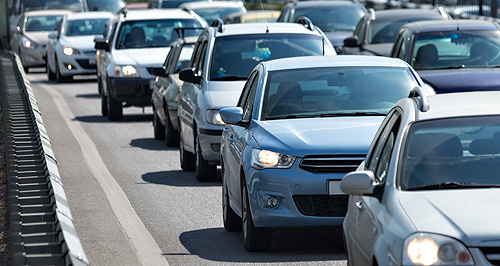News - General News - EmissionsGovernment set to review vehicle emissionsAchtung: German manufacturers could be in hot water after allegations of collusion on diesel emissions technologies. Federal government may consider tighter standards than Euro 6: Hunt2 Nov 2015 By IAN PORTER THE federal government may consider adopting tighter emissions standards than the Euro 6 target set to come into force in July 2017. Environment minister Greg Hunt also indicated that, in the light of the VW diesel emissions-rigging scandal, the government may institute local testing of new vehicle emissions to make sure manufacturers’ claims are accurate. He also confirmed that the assessment process leading to the setting of new emissions standards would be revealed within weeks. Speaking at the launch of the Brighsun New Energy electric bus company in Melbourne last week, Mr Hunt said consideration of new vehicle emissions standards would follow the signing of a national air quality agreement with the states and territories. “In the vehicle sector is where we see we have two great goals: one is clean air and the other is reduced emissions,” he said. “In December we are hoping we will achieve a national clean air agreement for the first time, and this will set standards in relation to, in particular, cleaning up our cities. “We have air quality which is some of the best in the world, but it can still be better in absolute terms.” After that, the details of how the emissions standards will be reviewed and changed will be released by the minister for territories, local government and major projects, Paul Fletcher. “We are about to release the terms for a new round of vehicle emissions standards to take Australia to Euro 6 standards and potentially beyond,” Mr Hunt said. “The relevant minister, Paul Fletcher, is going to make an announcement on the process before Christmas. That means we will be looking at Euro 6. “There are two stages. One is to establish the open assessment as to the appropriate standards and timeframe, but we’ll start that before Christmas. “And then there will be the actual setting of the standards, which we hope to do over an 18-month period.” Mr Hunt suggested that the government may do more than just agree to accept the claims of vehicle manufacturers when it comes to emissions. When asked whether he was concerned about the growing prevalence of diesel in passenger cars and the implications of the VW scandal, Mr Hunt said the government would examine the entire testing procedure. “One of the things we have to look at is the quality of testing overseas, and questions as to whether or not there should be specific testing in Australia,” he said. “I think that Paul Fletcher will have something to say on that.” Mr Hunt indicated that the presence of the local car manufacturers had delayed the adoption of world-class emissions standards. “In some ways we have been slow to adopt the best vehicle standards in Australia. In the coming weeks that will change,” he said. “(The review of emissions standards) is a response to the fact that, sadly, Australia is losing its manufacturing capabilities in terms of traditional vehicles, but part of our response is to say we can update the emissions standards for our fleet. “They haven’t been high enough.” The emissions of new cars in Australia have been falling in recent years, but progress has been slow, with a 22 per cent decline over the past decade. Figures released by the National Transport Commission in April showed that average CO2 emissions for new passenger and light commercial vehicles was down to 188 grams of CO2 per kilometre. This is 50 per cent higher than the equivalent European average, which was 123g/km over the whole of 2014. And it is a whopping 75 per cent higher than the best average for a single nation in the EU – 107g/km in the Netherlands. Federal Chamber of Automotive Industries (FCAI) chief executive Tony Weber issued a statement late last week saying the peak industry body welcomes the establishment of a ministerial forum to undertake a whole-of-government approach to addressing vehicle emissions, but made no comment on the prospect of regulations tougher than Euro 6. Instead, he highlighted that a “range of policy matters” need to be considered in order to make further reductions in average tailpipe emissions. “We are pleased the Australian government is looking to industries to provide real-world information on the important issue of emissions reductions,” Mr Weber said. “The continued commitment of car manufacturers to improve technology and environmental outcomes for new motor vehicles will achieve some continued reductions in vehicle emissions. “To make further reductions, a range of policy matters must be considered. This includes fuel quality, infrastructure and incentives for the take up of low-emissions vehicles, vehicle-to-vehicle (V2V) and vehicle-to-infrastructure (V2I) communication technology, and the structure of the Australian vehicle fleet. “The vehicle industry welcomes the opportunity to work with the government to discuss these policy considerations and explore opportunities to further improve on-road operation and efficiency of vehicles in Australia.”  Read more |
Click to shareGeneral News articlesResearch General News Motor industry news |


















Facebook Twitter Instagram